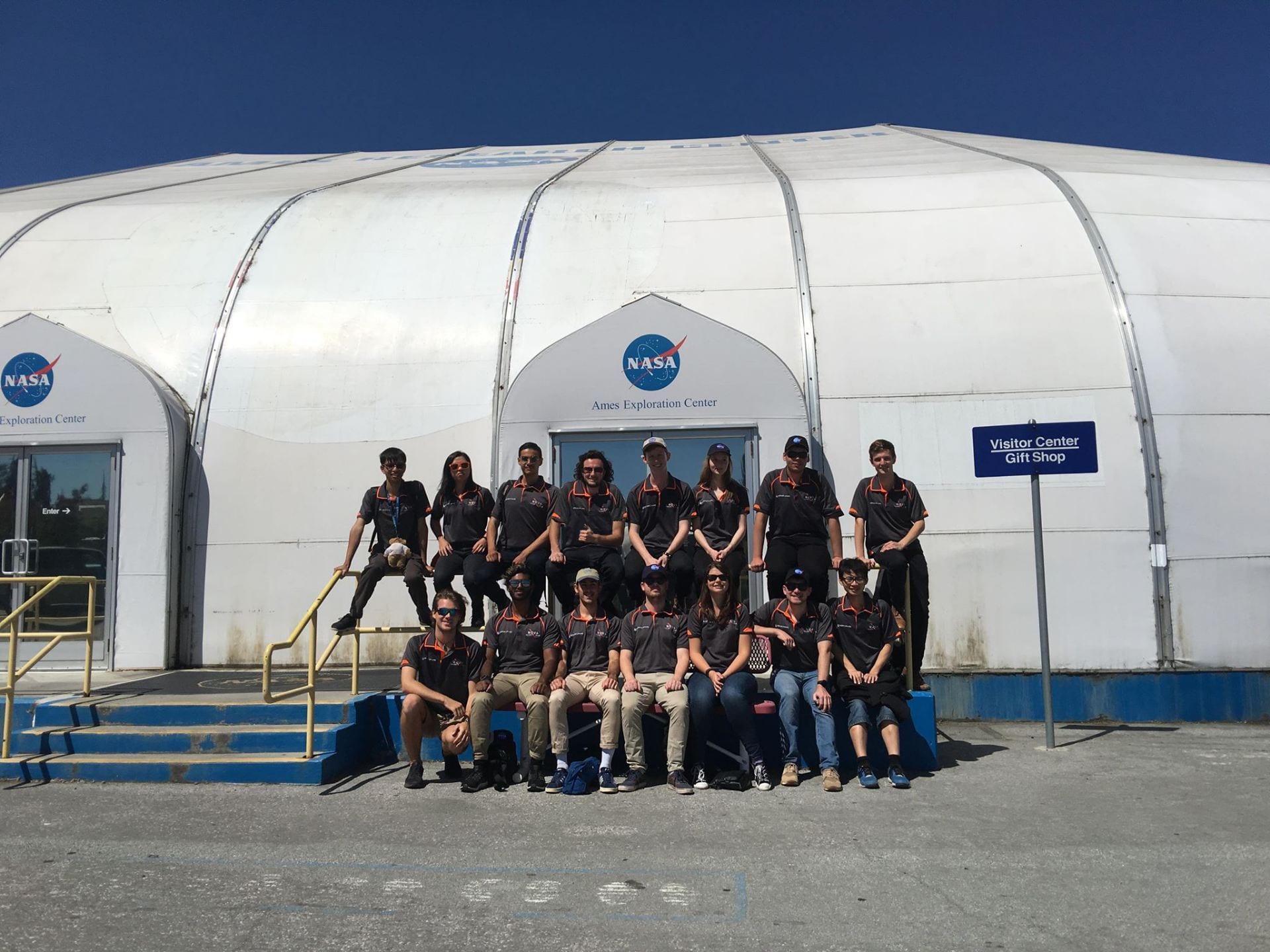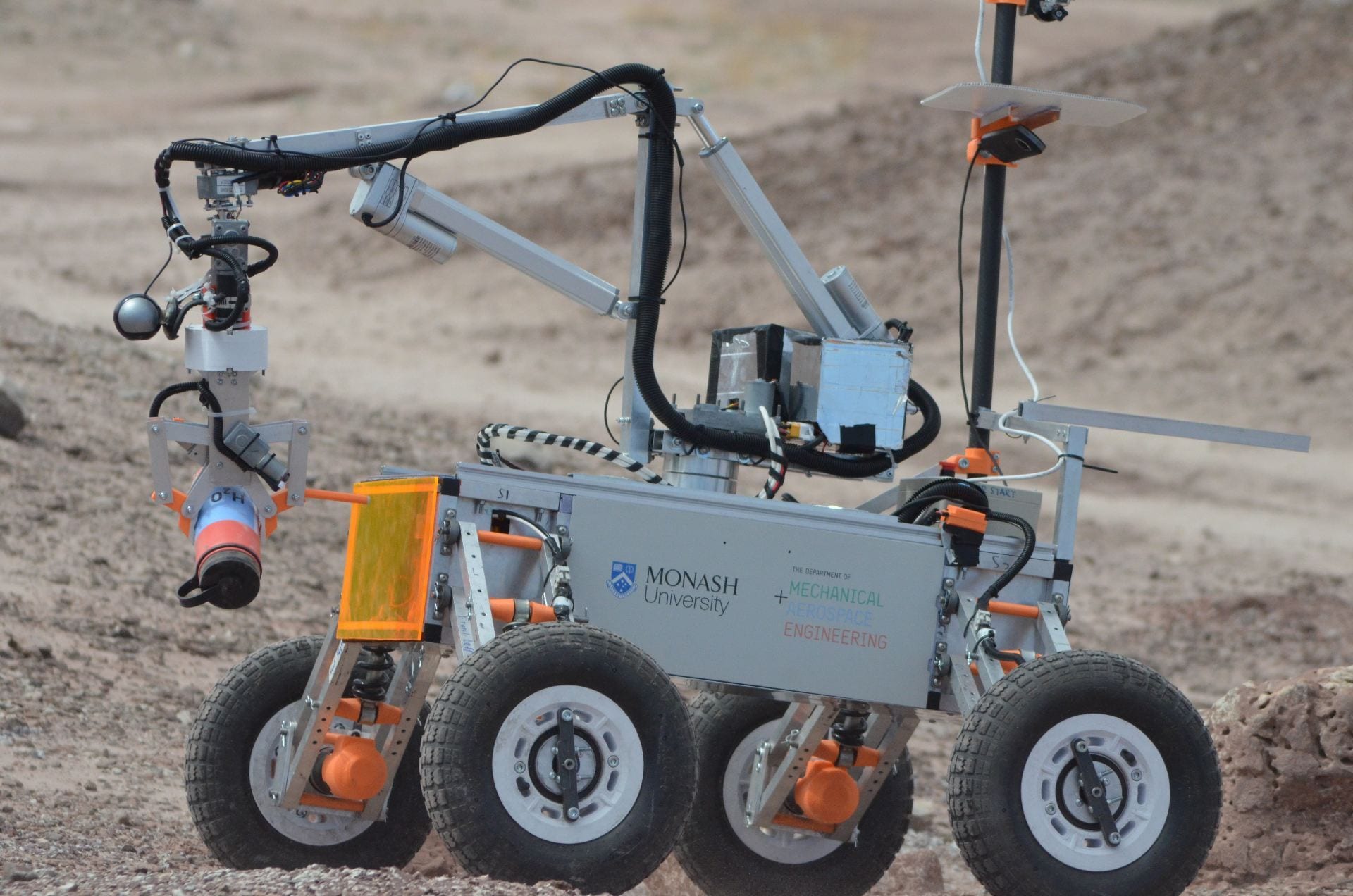After competing in the prestigious University Rover Challenge, Thomas Shiels, Operations Team Lead for Victoria’s Nova Rover Team, reflects proudly on the team’s journey and successes.
“Nova Rover Team is the first Australian Team to compete at the annual University Rover Challenge (URC). The URC is a competition where top university students from around the world compete to engineer an original rover for use on the surface of Mars. The URC competition is held at the Mars Desert Research Station in Utah and is considered one of the most challenging robot competitions in the world due to the harsh terrain, the difficulty of the tasks, and the logistics of transporting equipment there. As a first-year team, we were delighted that our work and sacrifice placed us 14th out of the 96 teams who applied.
The team was founded in 2017 after a group of six of us got together and decided that there were no outlets for students interested in space technology or Mars rovers. We made a detailed proposal to the Monash University Department of Mechanical and Aerospace Engineering and were entrusted with funds and a workspace. We expanded our team to fifteen talented and ambitious students and many students reduced their course load or deferred their studies in order to give their all to the team. In order to make up for our relative lack of experience in building rovers, we decided to construct two rovers. Our first rover was shown off during Monash University Open Day 2017 and provided a way to test our suspension, motors, steering and control systems. After learning much from this prototype rover, we constructed our final competition rover which we designed to be easier to transport and more robust.
It was incredibly exciting to arrive at the Mars Desert Research Station and have our rover drive. A Mars rover is a rather complex robotic system, which can make it quite volatile in terms of issues and debugging. Fixing a problem usually isn’t too hard, but finding the problem is a real challenge when the device has so many layers of hardware, electronics and software to peel back. We learned that the key to building robust systems is to prototype, test, assess and redesign. We also learned that it is important to not only design for functionality, but to also design for convenient debugging and testing. It was this philosophy, and the willingness of team members to stay up late fixing problems, that allowed our rover to perform on the competition days.
With the recent founding of an Australian Space Agency, which seeks to forge partnerships with industry, we feel there is no better time to follow your passion for space and robotic technologies. Our position at Monash University has been solidified by our successes in Utah and we wish to include more students in our project going forward. We hope that Nova Rover Team continues at Monash University for many years and can provide the outlet for students with an interest in space and robotics to innovate and build their ideas. During the second half of 2018, we are planning to take our rover to schools and events and allowing students to control our rover using virtual reality. If you wish to get in contact with us about an outreach opportunity, please email novaroverteam@gmail.com.
Our successes would not have been possible without the financial support and faith of Monash University’s Department of Mechanical and Aerospace Engineering, Faculty of Engineering, Faculty of Science and Boeing Australia.”



